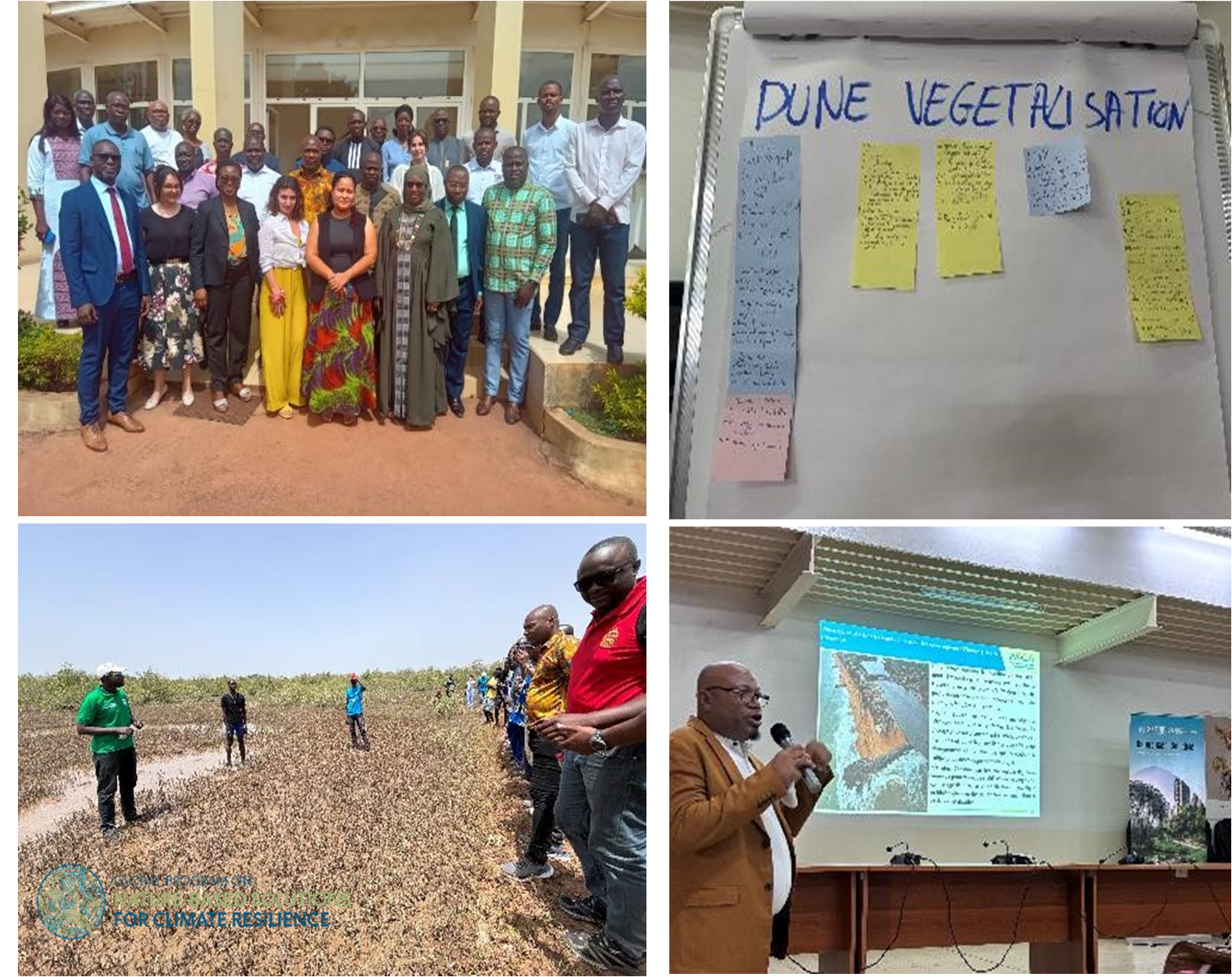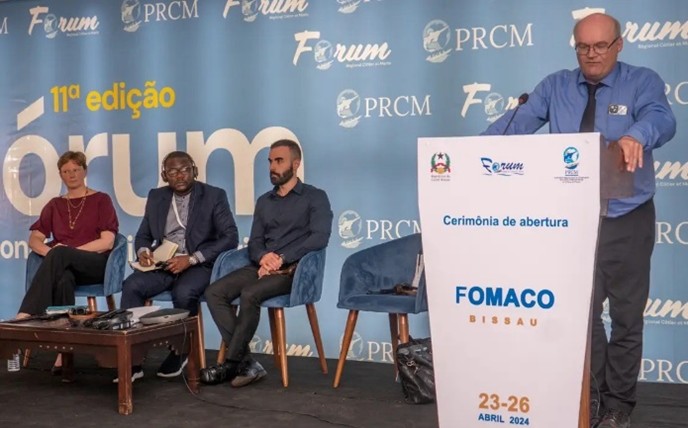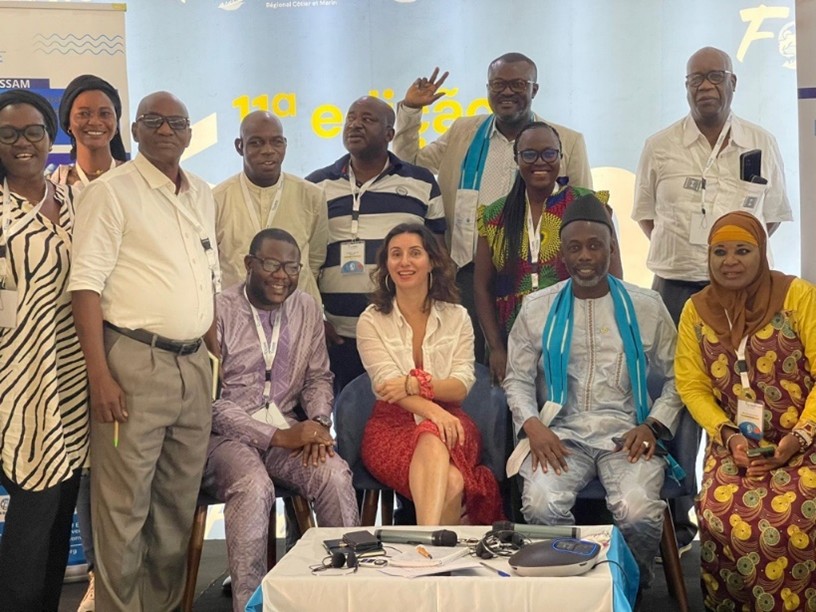News |
Looking Back: Strengthening Coastal Resilience and Blue Economy Readiness in West Africa (April 2024 Retrospective)
April 2024 was a milestone month for coastal resilience in West Africa. World Bank teams working under the West Africa Coastal Areas (WACA) Program worked alongside regional partners to advance shared priorities: building capacity, strengthening collaboration, and promoting innovation through nature-based solutions and the blue economy.
Nature-Based Solutions in Action
The Institute of Biodiversity and Marine Protected Areas (IBAP) in Guinea-Bissau organized a week-long training session on Nature-Based Solutions (NbS). This event brought together 45 stakeholders from all nine WACA ResIP countries. With technical support from the World Bank’s Global Program on Nature-Based Solutions (GPNBS-GFDRR), participants engaged in identifying, evaluating, and integrating NbS into their projects, focusing on resilience, biodiversity, and community engagement.
The session was rich in peer-to-peer learning, from Togo’s riverbank restoration to The Gambia’s agroforestry approaches. Discussions around monitoring and evaluation helped refine how the WACA ResIP 2 NbS Indicator aligns with national and global frameworks, including IUCN’s global NbS standard.
Participants also visited mangrove restoration sites in Cacheu, where local communities manage conservation funds to support climate resilience.

A Regional Stage: 11th PRCM Forum Highlights Collective Ambition
Later that month, Bissau hosted the 11th edition of the Coastal and Marine Forum organized by the PRCM — a key WACA partner. With more than 400 participants, including Guinea-Bissau’s President and Environment Minister, the forum served as an effective platform to elevate coastal priorities on a regional and international stage.
The WACA team led six side events and contributed to four high-level sessions. These sessions addressed various topics, including legal frameworks for coastal resilience, collaborative planning for erosion control, the use of satellite data via the Regional Coastal Observatory (ORLOA), and practical lessons learned from recent nature-based solutions (NbS) training.
Spotlight on Blue Carbon and the Future of Financing
One of the key moments of the event was Blue Carbon Day on April 24, co-hosted with WAEMU, IUCN, and other partners. The event drew more than 100 participants to a plenary session and three focused discussions exploring blue carbon standards, implementation experiences, and policy frameworks.
Countries across the region expressed growing interest in understanding carbon markets and identifying ways to position their coastal ecosystems within this global agenda. Many emphasized the importance of continued dialogue and targeted capacity building to strengthen their readiness for blue carbon opportunities.

Convening Financial Partners for Blue Economy:
On April 25, the team co-hosted a Financial Partners Roundtable with the French Office for Biodiversity (OFB) to improve coordination across ongoing projects and explore future opportunities for donor support. Eleven financial partners participated, sharing strategies and upcoming initiatives that intersect with climate change, ocean health, the blue economy, and coastal resilience. A dedicated session was held to discuss preparations for the 6th International Congress on Marine Protected Areas (IMPAC6), which is scheduled for 2027 in Senegal.
Partners also emphasized the importance of meeting regularly and utilizing regional and international events as opportunities to convene.
